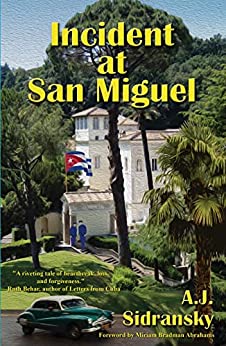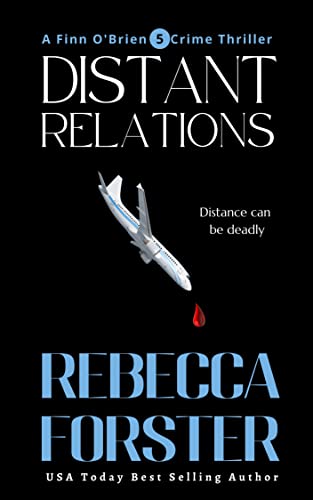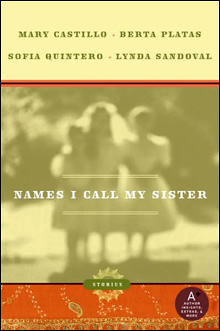MY MAN JACK: Lessons Learned from LaLanne
January 25, 2011 by Rebecca Forster in category The Write Life by Rebecca Forster tagged as Adventures in Writing, creativity, grandparents, Inspirational fiction, mentor, Rebecca Forster, writing processWhen I was eight years old I spent the night with my grandmother, a handsome woman who, as I look back, was probably younger than I am today but looked 10 years older. She was a German lady who wore housedresses and pin-curled her grey hair. She was proper, punctual and particular but when I woke up the morning of our sleepover, I found her holding onto the back of a chair, shoeless and enthralled by the man on the television. His name was Jack Lalanne.
Jack held onto the back of a chair, too, but he wore a skin-tight jumpsuit that showed off his muscles – all of them. I had never seen a man dressed like that. Even at eight, I knew I was watching something extraordinary – maybe even a little naughty. Watching my grandmother lift her leg ever so slightly, put her arm over her head like a ballerina, bend from the waist so that I could actually see the backs of her knees was awesome. Grandpa was gone. The doors were locked. The only sound was Jack’s voice encouraging my grandmother to do things I never thought she could do. I was privy to something I had no word for and I never told anyone about grandma’s morning with Jack.
Almost twenty years later, I met Jack Lalanne for real. I was an account executive with a major advertising agency and Jack LaLanne Health Spa was my client. Though I didn’t know it then, I was working on an account that was the forerunner of a social and health phenomena of fitness clubs, spas and specialty gyms. Before 24 Hour Fitness, Equinox or day spas there was Jack Lalanne.
We met during a commercial shoot. My job was to make sure we stayed on budget, on schedule, on message and that the client was happy. To this day, I don’t know if the client was happy. Jack, dressed in his iconic black jumpsuit, stood apart and managed only a distracted hello.
He was perpetual motion as he waited for his call: flexing, stretching, moving. And, most interestingly, he talked to himself. Eventually, I realized he was rehearsing his line. He only had one but the man was nervous and that made me curious.
How could a man who inspired my grandmother to take off her shoes and exercise, a man who spoke to people on TV every day be nervous about delivering one line? It took me many years and my own journey as a writer to understand why, that day on the set, Jack LaLanne was sweating. It was because he was not a pitchman, he was an advocate. Jack LaLanne sold best when he sold in his own language and with his own message. That man not only inspired people to exercise but to be their best in every aspect of their lives.
A few days ago, I woke up and found that Jack LaLanne had passed away. I doubt he would have remembered me but I will always remember him. I will remember him as a part of my childhood but I will also remember what he taught me about being a creative person. So, here you go. The lessons I learned from Jack.
Write, compose, draw, speak, work with love and focus.
Always exercise: your mind, your imagination, your skill.
Be consistent. Be a brand. Craft your own “black jumpsuit” so that when people pick up your book or see your picture or hear your song they will know what they’re getting.
Plan your career, do not calculate it. Eventually, calculation will override passion and you will lose your “voice”.
Do not worry about how many people read your work. Creating something that is meaningful to one person is more important than having thousands know your name but not remember your work.
Share your passion. If you have a chance to inspire, to coach, to encourage, do it. Do it with abandon. Do it with energy. Do it without concern that sharing your knowledge will take something away from you. It won’t.
Thank you Jack. I was inspired by your energy, your abandon and your goodwill. I will pay it forward and, when I do, I will think of you.
0 0 Read moreAm I an Idiot? Working with a Freelance Editor
January 15, 2011 by A Slice of Orange in category Archives tagged as freelance editor, how to, writing processJanuary. We begin anew. We slough off our baggage and leave the past behind. Except when we don’t. Which brings us to the topic of freelance editors.
I have dragged mine into every New Year, every new project,* every new puddle of angst where I wallow in the knowledge that I will never write a decent book again. I have done this for 26 years. My freelance editor’s name is Jenny Jensen**. To her credit, she does not roll her eyes as she takes me by the scruff of the neck, shakes off the muck and and points me back to the computer. I use her because she is in my corner. I also use her because I sell more often when I do.
That fact alone should be enough for me to never question my association with Jenny, yet I do. I want to know why, after all these years, can’t I edit myself? Haven’t I learned anything from her? I had to know. Am I an author idiot?
Thankfully, the answer was no and Jenny had a couple of good reasons why I wasn’t:
Writing is a fast and furious process when it is going well. Grammar and spelling are not top of mind when an author is ‘in the zone’; words and ideas must flow freely.
Self-editing is prone to ‘blindness’. The author often sees no difference between her intent and the typed words. A good editor understands and respects the author’s words and voice while cleaning up the grammatical flaws that set the signals – signals that allow the reader to effortlessly navigate the story.
Some writers see punctuation as a bother. A well-punctuated manuscript will catch the eye of a publisher and so will one that is not punctuated well. Only one will sell.
Finally, some people are writers and others are editors. Like a writer with an instinct for story, an editor has an instinct for a pause, a rolling stop and when to quit. She knows when creativity and inspiration becomes awkward and interferes with story.
Knowing why I use a freelance editor usually leads to the question…
Can Only Rich Writers Afford a Freelance Editor?
Anyone who has been writing as long as I have can tell you that writing is not the road to riches. Most of us write while holding down other jobs and dealing with families. Some write for the pure love of it; most write in the hopes of making it their profession. So, how can the expense of a freelance editor be justified?
First an author must understand that books are business. New York publishers have bottom lines to meet, independently published authors want to sell their books, online retailers want to turn a profit. The way to determine if it is worth spending money on a freelance editor is to first define your writing objective.
If you want to attract an agent, a New York publisher or stand out in the indie market then, in my opinion, an editorial eye is a necessity. Prices range from the ridiculously cheap to the astronomically expensive. Some projects only need grammatical assistance and others continuity or story editing. Story editing is more expensive but, in my case, is critical. I write thrillers that rely on a trail of clues and red herrings and I cannot assess the effectiveness the webs I weave on my own.
In this roiling market, those who offer the cleanest, most professional product will be noticed. In the e-book market, those who present a flawed product will be called on the carpet instantly and very publicly. That is the worst kind of publicity and hard to recover from.
How Do I Work with a Freelance Editor?
The same way you work with a New York editor attached to a publisher. You respect one another’s expertise and perspective. You have discussions, not confrontations. You understand that while this is your book, her work is also held out to public scrutiny.
The Author:
Do not forward your first draft. Make it the best it can be before offering it for critique.
When the editor returns her comments/changes read them, set them aside and come back to them in 24 hours.
Look at your edited work with an objective eye. The editor is the first reader. If she questions something so will the person who buys your book.
Pay your bills, say your thank yous. Even if you don’t like editorial suggestions, the work has been done. This is a small community- and getting smaller all the time considering the internet – and an author’s reputation is easily damaged.
Ask questions. If something doesn’t make sense, talk it out. Most freelance editors offer a certain number of follow-ups. Be succinct. Be focused.
Do not expect continuity editing if you have paid strictly for grammar/spelling edits.
The Editor:Should be respectful of your work and have no genre preferences.
Should exhibit that she understands your ‘voice’.
Should clearly state their fees up front and be specific about what the service entails.
Should have an acceptable turn around time.
Bottom line, if you can afford it, freelance editing makes all the difference in your final product. If you can’t spend the money find the next best thing: a middle school English teacher to help out, a wonderful book on grammar or a friend who will be read your manuscript and be honest.
Rest assured, you are not an author idiot if you can’t self-edit. You are a writer. Other (wonderful) people are (thankfully) editors. Together, we make books that people want to read.
*23 traditionally published books, 2 indie e-books, 1 film script in development.
**Jenny resides at http://www.e-bookeditor.com/. Note the wonderful example on her home page of what a difference punctuation can make.
Visit http://wwwrebeccaforster.com/ for writing tips, reading recommendations, lots of pictures and a sneak peek at my latest book.
5 0 Read moreIncubating and the Writer’s Cave
October 28, 2010 by A Slice of Orange in category Archives tagged as deadlines, writing processI tend to be reluctant to sit down in front of the keyboard to write until the deadline is breathing down my neck. I always thought this was procrastination, but I read an article a little while ago that makes me realize that I’m not a procrastinator. I’m an incubator.
What’s an incubator? Someone who thinks about the story for a long time—incubating it—until it’s ready to come out in one huge burst. My subconscious works on the story as I go about my ordinary life, as if I’ve put a stew on the back burner to simmer and am adding ingredients to it all day long. Then suddenly the stew is done and the story needs to get on the page. That’s when I crawl into my writer’s cave, sit down and start writing. Am compelled to write, just like contractions compel a mother to push during childbirth.
The writer’s cave is more mental than physical, though it does help to have a physical space where you can retreat to get the work done. This might be an office or corner in your home or maybe somewhere like Starbucks or the bookstore or wherever works for you. It helps if the cave is the same physical space every time, signaling your brain that when you go there, it’s time to write. I also end up clearing my calendar of all optional social engagements so I can just crawl into the cave without fear of interruption and give birth to my story.
I would love to be one of those people who plot out a book and then sit down every day and write X number of pages or such-and-such a scene, but that isn’t how I work. I need all those weeks to let the story form in my mind so it comes out organically in one long burst. Once I reach that point, I am able to accomplish a substantial amount of pages per day. Since the story is fully formed, I also tend to do very little rewriting before I send in the book. This is what works for me. It’s my process. What’s yours?
1 0 Read more5 Tips to Writing Fiction that I learned from writing kids’ cartoons for TV by Jina Bacarr
April 11, 2010 by A Slice of Orange in category Archives tagged as cartoons, Confessions of a Podcast Goddess, Inspirational fiction, TV, writing processWhen I was preparing for a teleconference with author Heidi Richards for her publishing series about writing fiction, I thought about my early days in TV and the valuable lessons that I learned from writing scripts.
I discussed this topic in depth with Heidi in the teleconference, but I’ve included my 5 tips for writing fiction for you at the end of this blog. But first–
How did I start writing sexy fiction?
When I wrote a monthly column for a computer magazine called Sweet Savage Byte, who knew years later mainstream would meet bitstream, making e-books (including sexy fiction) available at the click of a mouse. The Internet’s easy access and anonymity made it all possible.
It also gave the opportunity for so many writers to bring out those stories from underneath their beds and see their works published.
My sexy coming-of-age story “The Blonde Geisha“ was published by Harlequin Spice during that time. That novel was followed by several other titles that I’ve written for Spice as well as a non-fiction book for Stone Bridge Press, “The Japanese Art of Sex: how to tease, seduce and pleasure the samurai in your bedroom.”
Here is the short version of my 5 Tips for writing fiction that I learned from writing kids’ cartoons for TV:
1. Beat It: know your story beats
2. You gotta have heart. What is your emotional theme?
3. Dialogue is king (or queen).
4. The white rabbit syndrome: getting into the scene as late as you can and out as quickly as you can.
5. Writing is rewriting.
So the next time you sit down to watch your favorite TV show, watch it with the eye of a television writer: note the story beats, boil down the emotional core of the story to one or two words, listen to the dialogue, watch how they get in and out of a scene, then press rewind and watch it again.
And don’t forget the most important tip of all when you write your story: let your imagination soar.
It’s the magic that makes the elephant fly.
The Blonde Samurai
“She embraced the way of the warrior. Two swords. Two loves.â€
Learning to Love the Writing Process
June 28, 2009 by A Slice of Orange in category Archives tagged as novels, writers, writing processWriting a book is not easy. If it were, everyone would do it.
It’s not like writing a term paper. Yes, it requires hard work and research, but the thing that makes a book special is the heart and soul the author puts into it. It really is like childbirth. There’s a lot of pain and sweat and maybe some cursing, and then finally a new project is brought into the world—a unique and wonderful project that is nothing like anyone else’s. Just like a baby.
When a writer first decides to write a book, most of the time he or she is not quite sure how to go about it. The non-writing part of the population figures you just need to sit down and put in some time and poof—a book is born (See term paper reference above). Yes, writing an entire book does take time. How much time? That depends on the writer. And you can speed up your writing time by accepting and loving your Process.
What is your Process? It is how you write your book. Not how I write my book—that’s my Process. You need to figure out your own process—what works for you that gets you from Page One to The End. And the best way to do that is to write a book, all the way through.
Every writer has his or her own process. I’ve written and published twelve books over the past ten years or so, and I still call up my friend when I get stuck. And I still get stuck at the same place in every book—between chapters five and nine—where I spend a long time banging my head against the wall and wondering if I will ever finish another book in my life…EVER. And you know what my friend says? “Oh, that’s just your process.â€
For some reason, knowing that this is my process immediately makes me feel better.
“You do this with every book,†she says.
I do?
“I’ve been studying your process. I’m trying to learn from it.â€
You are? Can you clue me in?
I have learned some things about my process over the years. There’s the chapter 5-9 problem. Usually when I’m in the middle of a frustrated, Tasmanian Devil spin, the realization that I am at the end of chapter six calms me down. Okay, this is what I always do. Grit teeth and tough it out.
Then there’s the fact that I am sort of an organized pantser. I’ve been selling on synopsis for about eight or nine years now. I write a synopsis and get approval from the publisher, and then I start writing the book. I write the first couple of chapters. Go back, change them. Decide no, that’s not where the story starts. Write a different beginning. Okay, this one might work. Write some more (usually just up to chapter 4 or so—don’t want to hit the No Man’s Land of Chapters 5-9 while still wrestling with the beginning). I might even write a third incarnation of the beginning of the book. Send to writing friends for review. Get comments. Maybe I hear a speaker or read a writing book that makes me reconsider the beginning. Maybe I try storyboarding, but something still isn’t right. In the end, nine times out of ten I will end up going back to my first version of the beginning of the book. Turns out that was the right place to start after all.
Once I have accepted the beginning few chapters, and I have wrestled with my chapter 5-9 issue, I usually get to the first love scene in the middle of the book—around chapter 10 or so. Writing love scenes and sexual tension is easy for me, so once I get to that point, the rest of the book flies. I am able to surge forward at warp speed and finish the book on time.
With every book I write, the frustration is still there. The certainty that my last book may well have been my LAST book. Every beginning I chase myself in circles. Every second quarter of the book I bang my head against the wall. Then I hit the middle and suddenly the words fly almost faster than I can type them. And when it’s all over, I have a book to submit.
Then I have to do it all again for the next one.
Understanding my process definitely makes it easier to accept while I am in the midst of deadline angst. Loving my process is harder, but the two of us are joined irrevocably. We create wonderful stories together, and that makes it all worthwhile.
3 0 Read moreAffiliate Links
A Slice of Orange is an affiliate with some of the booksellers listed on this website, including Barnes & Nobel, Books A Million, iBooks, Kobo, and Smashwords. This means A Slice of Orange may earn a small advertising fee from sales made through the links used on this website. There are reminders of these affiliate links on the pages for individual books.
Search A Slice of Orange
Find a Column
Archives
Featured Books
DISTANT RELATIONS
Finn's life is in the hands of a distant and deadly relation.
More info →NAMES I CALL MY SISTER
Four stories of sisterhood—the bonds, the wars, the frustrations, the love—seasoned with hot Latin spice!
More info →A CHRISTMAS SAMPLER: Sweet, Funny, and Strange Holiday Tales
Winner of the 2010 Next Generation Indie Book Awards for Best Short Fiction and Best Anthology
More info →Newsletter
Contributing Authors
Search A Slice of Orange
Find a Column
Archives
Authors in the Bookstore
- A. E. Decker
- A. J. Scudiere
- A.J. Sidransky
- A.M. Roark
- Abby Collette
- Alanna Lucus
- Albert Marrin
- Alice Duncan
- Alina K. Field
- Alison Green Myers
- Andi Lawrencovna
- Andrew C Raiford
- Angela Pryce
- Aviva Vaughn
- Barbara Ankrum
- Bethlehem Writers Group, LLC
- Carol L. Wright
- Celeste Barclay
- Christina Alexandra
- Christopher D. Ochs
- Claire Davon
- Claire Naden
- Courtnee Turner Hoyle
- Courtney Annicchiarico
- D. Lieber
- Daniel V. Meier Jr.
- Debra Dixon
- Debra H. Goldstein
- Debra Holland
- Dee Ann Palmer
- Denise M. Colby
- Diane Benefiel
- Diane Sismour
- Dianna Sinovic
- DT Krippene
- E.B. Dawson
- Emilie Dallaire
- Emily Brightwell
- Emily PW Murphy
- Fae Rowen
- Faith L. Justice
- Frances Amati
- Geralyn Corcillo
- Glynnis Campbell
- Greg Jolley
- H. O. Charles
- Jaclyn Roché
- Jacqueline Diamond
- Janet Lynn and Will Zeilinger
- Jaya Mehta
- Jeannine Atkins
- Jeff Baird
- Jenna Barwin
- Jenne Kern
- Jennifer D. Bokal
- Jennifer Lyon
- Jerome W. McFadden
- Jill Piscitello
- Jina Bacarr
- Jo A. Hiestand
- Jodi Bogert
- Jolina Petersheim
- Jonathan Maberry
- Joy Allyson
- Judy Duarte
- Justin Murphy
- Justine Davis
- Kat Martin
- Kidd Wadsworth
- Kitty Bucholtz
- Kristy Tate
- Larry Deibert
- Larry Hamilton
- Laura Drake
- Laurie Stevens
- Leslie Knowles
- Li-Ying Lundquist
- Linda Carroll-Bradd
- Linda Lappin
- Linda McLaughlin
- Linda O. Johnston
- Lisa Preston
- Lolo Paige
- Loran Holt
- Lynette M. Burrows
- Lyssa Kay Adams
- Madeline Ash
- Margarita Engle
- Marguerite Quantaine
- Marianne H. Donley
- Mary Castillo
- Maureen Klovers
- Megan Haskell
- Melanie Waterbury
- Melisa Rivero
- Melissa Chambers
- Melodie Winawer
- Meriam Wilhelm
- Mikel J. Wilson
- Mindy Neff
- Monica McCabe
- Nancy Brashear
- Neetu Malik
- Nikki Prince
- Once Upon Anthologies
- Paula Gail Benson
- Penny Reid
- Peter J Barbour
- Priscilla Oliveras
- R. H. Kohno
- Rachel Hailey
- Ralph Hieb
- Ramcy Diek
- Ransom Stephens
- Rebecca Forster
- Renae Wrich
- Roxy Matthews
- Ryder Hunte Clancy
- Sally Paradysz
- Sheila Colón-Bagley
- Simone de Muñoz
- Sophie Barnes
- Susan Kaye Quinn
- Susan Lynn Meyer
- Susan Squires
- T. D. Fox
- Tara C. Allred
- Tara Lain
- Tari Lynn Jewett
- Terri Osburn
- Tracy Reed
- Vera Jane Cook
- Vicki Crum
- Writing Something Romantic
Affiliate Links
A Slice of Orange is an affiliate with some of the booksellers listed on this website, including Barnes & Nobel, Books A Million, iBooks, Kobo, and Smashwords. This means A Slice of Orange may earn a small advertising fee from sales made through the links used on this website. There are reminders of these affiliate links on the pages for individual books.











































